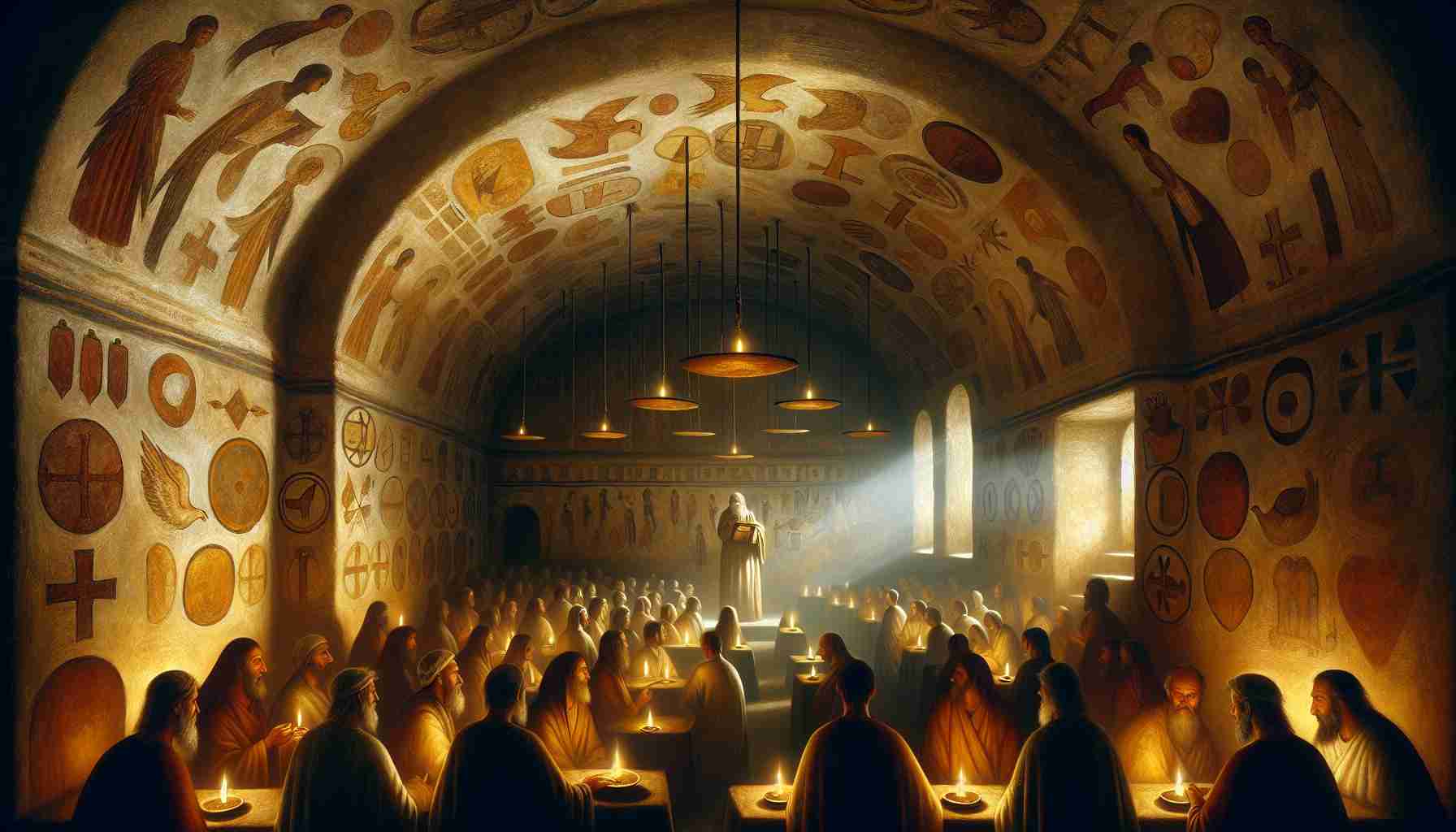

Stone dust clung to Junia’s robe as she squeezed through the alley behind the Transtiberim tenement. The scent of wet ash still haunted the city after the fire that had consumed it two summers ago, and though it was no longer visible, to Junia it always would be. Her brother had vanished in that flame, accused of starting it because he bore the name of Christ.
Tonight, Rome whispered like a city exhaling. Something had changed. Soldiers no longer scoured the districts after curfew. The Praetorian guard had vanished from the domus of Nero. And that sunset—blood-orange and slow to die—clung like an omen.
Within the buried cellar beneath a carpenter’s shop, the faithful gathered. Oil lamps cast halos of flame against stone walls blackened by worship conducted in secrecy. Fishermen and freedwomen, ex-legionaries, even a senator cloaked in anonymity—they came shoulder-to-shoulder to hear the sacred words Paul had once spoken in this very room.
But Junia didn’t need reassurance. Not anymore. She had heard the murmurs in the streets near the Palatine: Nero was dead.
“Stabbed himself at last,” said Claudius, a cobbler who had once repaired sandals for Gaulish generals. “Couldn’t stomach living in a world that no longer feared him.”
“He had no heir,” whispered Damaris, barely audible over the scraping of sandals. “The Senate declared him an enemy of the people. They say soldiers closed in, and still he played the lyre.”
Mocking laughter passed around, too reckless for the educated, too bold for slaves. But tonight it was different. For the first time in years, fear was not sovereign.
A man stood and addressed the circle. Phoebus, his name was, heavy with the authority others claimed Peter had once laid on him. “I was there when the spear broke Paul’s ribs,” his voice cracked. “He called out not for revenge, but for mercy—for the governor who sentenced him.”
They recalled Peter too—the shepherd who demanded not to be crucified like his Lord, and instead was hung upside-down beneath Nero’s circus where the obelisk still cast its long shadow. His blood had vanished into the roots of the Vatican Hill, but his words had not.
As lamps flickered low, Phoebus opened a worn scroll. “Many are the afflictions of the righteous,” he read aloud, voice quiet but unshaken, “but the Lord delivers him out of them all.” Someone exhaled in relief; Psalm 34:19. A promise from the songs of David. A prophecy fulfilled that very day.
A tremor passed through the floor. Outside, hoofbeats rushed past. No soldiers burst inside. No blades dragged bodies into cages. Instead, a child laughed in the distance, and someone nearby began to weep.
Just days before, plaques had been hung condemning Christians as fire-starters and traitors to Rome’s gods. Now, they hung askew, ignored, fading with the dust of a madman’s legacy.
What Rome would become without Nero no one yet knew. Galba had marched in from Hispania; power would leap like wildfire among generals, but for the first time, it leapt without touching them.
Junia stepped into the street as dawn kissed the cobbles. She passed an alley where Peter had once healed a beggar, holding nothing in his hand but the name of Christ. Nearby, a marble statue lay shattered, its inscription missing. Nero’s arrogance had crumbled faster than stone.
They called him a god in his life, but no one lit incense now. No one sang odes in his memory. His ashes were denied the rites of an emperor.
But the songs of the martyrs remained. From cellars and catacombs, they would rise. Not loud, but persistent, the way Galilean seeds cracked through marble roads when no one watched.
That very week, a gospel was copied again in Greek. A woman’s brother scribbled notes beneath the arches by the Forum, relaying Paul’s letters to Ephesus. Whispers became retellings; retellings became witness. The church spread—not by sword, not by decree, but by relentless hope.
On June 9, 68, Nero had pressed a blade to his own throat afraid. The man who had once torn Paul from a prison cell, who doused believers in pitch to light his gardens, died not as a lion but as prey cornered by judgment.
Faith, however, remained.
It passed through the veins of broken fishermen, into parchment carried across deserts, through the mouths of widows in catacombs and children singing in markets. Empires would rise and fall. Fires would return. But the Word burned brighter.
Junia looked skyward, beneath a Roman sky that no longer belonged to Rome. Her brother had not died for nothing. She spoke his name, one forbidden weeks ago. She sang the name of another—still more dangerous—and no soldier came.
Faith had not only survived—it had sung through fire and came walking out unburned.
Rome had tried to silence it. Instead, it had planted it.